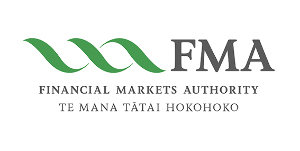FMA tests legal waters on eligible investor exclusion
Wholesale investors will likely need to provide more detailed evidence of their eligibility if the Financial Markets Authority receives support for its position on eligible investor exclusion from the High Court.
Monday, January 13th 2025, 12:16PM  2 Comments
2 Comments
by Kim Savage

Wholesale investors will likely need to provide more detailed evidence of their eligibility if the Financial Markets Authority receives support for its position on eligible investor exclusion from the High Court.
The FMA has filed a case stated proceeding, seeking the court’s view on the use, confirmation and acceptance of eligible investors certificates. Certification helps prove an investor has sufficient experience to accept a wholesale offer, forgoing the protections offered to a retail investor.
If the FMA’s position is confirmed, investors will need to prove not only that they have experience in acquiring and disposing of financial products, but also what aspects of their experience helps them to assess the offer. Offerors would also be expected to carry out their own due diligence to be satisfied a certificate is valid, rather than relying on the third party which confirmed the certification.
“The Court's opinion will assist the FMA to discharge its statutory function to provide guidance to market participants as to when investors may qualify as eligible investors and what obligations an offeror has when considering an application from an investor,” the High Court filing outlines.
“It will also be relevant to guidance provided to third-parties who are required to provide written confirmation of eligible investor certificates.”
In 2022 the FMA released the findings of a review into the use of wholesale investor exclusion, which it said had uncovered “undesirable practices”, including instances where investors were treated as eligible but did not meet the criteria set out in law. There was also disagreement between FMA and offerors about the interpretation of eligible investor exclusion, prompting the FMA to seek legal clarification.
In its filing, the FMA says it tried to get one of the offerors from its review to participate in the proceeding to provide a counter view, but the offeror didn’t want to take part. In the absence of an industry body, the FMA itself provided a summary of the offerors’ views on the interpretation of eligible investor exclusion.
The FMA says it intends to file further submissions on its position once a timetable is provided by the court.
| « Evidence-based strategies propel Consilium funds above $1 billion | New non-bank deposit taker to court advisor networks » |
Special Offers
Comments from our readers
If anything, it is harder to apply for a wholesale scheme. It is akin to turning off your computer virus protection, and why would you do that?
Also, it is no harder to write a PDS than an information memorandum unless you do not want to disclose something.
Just get rid of the wholesale arrangements,(or mandate a 750k + minimum), it only enables lower protection and de minimis disclosures for mum and dads lured by % return claims.
Sign In to add your comment
| Printable version | Email to a friend |




The definition of a wholesale investor on the FMA website is about what you must do or have or be. It is not about you must do or have or be plus providing a certificate or evidence. You are either a wholesale investor or you are not and the provision of information or not does not change that.
The question, therefore, is “what evidence does a manager need to satisfy themselves that the person who applies to make an investment is wholesale?” This is also about what business risks do they want to take as the collection of information will not guarantee that they are wholesale.
If the FMA thinks that a manager has sold a product for wholesale investors to retail investors, then the FMA should enforce the law and prosecute the manager. The manager will have either broken the law or not, based on the facts. The FMA will have to show that one investor at the time of the investment was not wholesale.
If the FMA defines the requirements for evidence and due diligence it is guaranteed not to be fool proof and raises a further question or whether it is morally right to prosecute a manager who broke the law but who complied with the FMA guidelines.
Currently many managers rely on a certificate or a tick the box on a form. They, in my view, take on a significant business risk and would be advised to review their practices. At the end of the day they need a process that lets them make the statement “I am confident that this investor is a wholesale investor because of . . . “